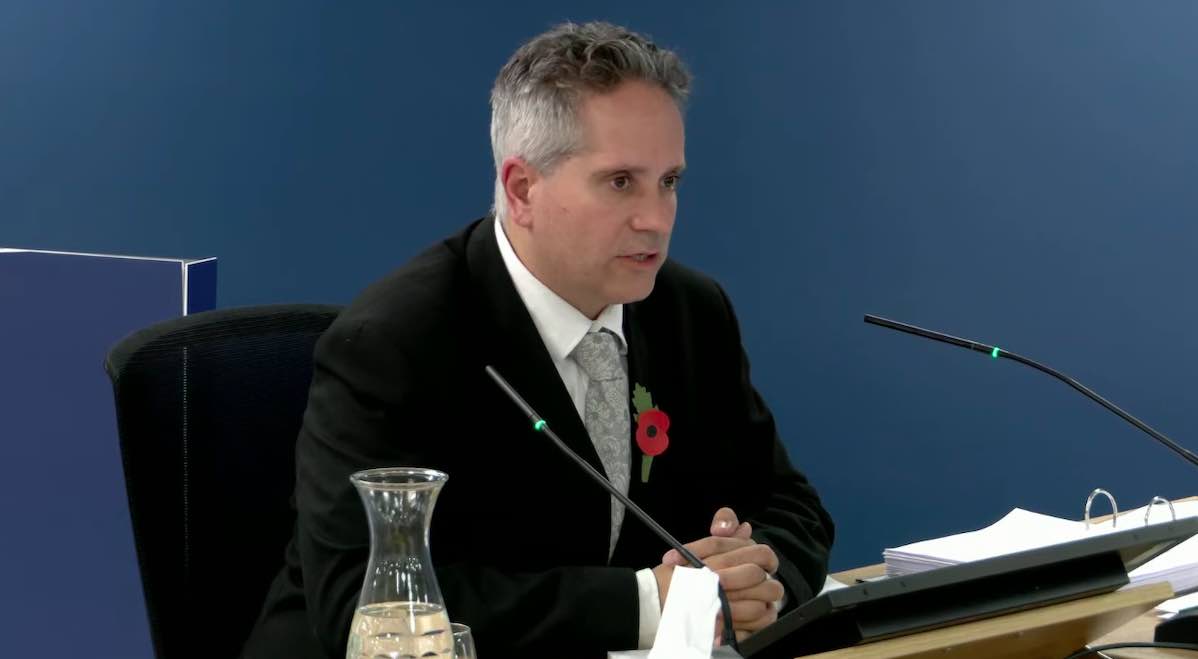News

Pharmacy closures 'tragic' for future pandemic response
In News
Stay up to date with all the news, learning and insight in the world of pharmacy.Bookmark
Record learning outcomes
“Make sure we’re here. Use us. We are part of primary care.” With those words, NPA chairman ended his evidence to the Covid-19 Inquiry this week, as he highlighted the the current crisis in community pharmacy to Dame Heather Hallett on Monday afternoon.
Asked to summarise what recommendations the NPA would like the inquiry to consider to better enable pharmacies to fulfil their critical role in a future pandemic, Mr Kaye said: “As I sit here today, seven pharmacies a week are closing across the four nations. That is tragic for any future response, so a resilient and sustainable network is going to be key.”
Mr Kaye highlighted the challenge presented by some of the bureaucracy that had sprung up, but he also suggested that community pharmacy should be formally reframed as “a genuine part of the NHS family and a key deliverer of health care”.
In detailed questioning from counsel to the Inquiry Max Mills for almost an hour, Mr Kaye, who was working in a pharmacy “delivering frontline services” in Penryn, Cornwall, as Covid-19 arrived, described how community pharmacies assumed the role of “first port of call” for patients struggling to access the health service. “I'm exceptionally proud of all community pharmacies for the way in which they stood up,” he said.
“Being accessible – people can just walk in and see you – is a unique part of community pharmacy. People were scared. We didn't have all the answers, but we were dealing with lots more inquiries, both about medicines supply but also general healthcare questions.”
Mr Kaye described pharmacy’s response to a series of challenges across 2020-21. The rise in the number and complexity of consultations. The scaling up of medicine deliveries. The Covid vaccination roll-out. The difficulties in sourcing PPE and the delay in adding pharmacists to the list of those who could access central supplies owing to their classification as “retail”. Then there were the practicalities, such as the ability of pharmacy staff to maintain social distancing from each other and from patients in the pharmacy environment, and the impact of staff needing to isolate on service provision. “The community pharmacists we represent are the lead clinician, duty clinician, manager, business owner, counsellor. The clue's in the title - the community pharmacy is part of its community,” he said.
The session also covered how community pharmacy was, time and again, initially excluded from mitigating actions taken by Government, including the provision of death in service benefits to health workers who lost their lives to Covid, and the designation of 'key workers' allowing access, for example, to in-school education for children. Mr Kaye said the Government had responded quickly to an NPA letter pointing out the exclusion from the death in service provision but “it feels like an afterthought”. He added that Government communications also consistently referenced pharmacists, when community pharmacies comprised teams of people delivering for the public.
Questioned on funding during the early days of the pandemic, Mr Kaye detailed the nature of the advance pharmacies received but pointed out that it “that needed to be recouped” and the reimbursement of Covid-related expenses, which didn’t happen until 2022. Cashflow had been a real challenge, he said. “You are feeling a bit of an afterthought by Government, but you are going to work from seven in the morning to 11 at night, separated from family members for 10 weeks, but [thinking] can I actually pay my team or my mortgage,” he said.
Asked about a 2022 Royal Pharmaceutical Society survey on workforce, which showed very high levels of burnout in the community pharmacy sector and in women compared to men, Mr Kaye said: “It’s hard to look at. It’s a stark reminder of the uncertainty in how you’re going to get the PPE you need, the medicines you need, how you are going to pay your team? That becomes overwhelming." The additional caring responsibility that falls on women in society should be recognised as contributing to the figures, he added.
Mr Mills also spent time on the NPA’s April 2020 open letter to the public, asking for their help and understanding of the work pharmacists and their teams were doing during the first months of the pandemic. “Most people were incredibly understanding,” Mr Kaye said.
“The accessibility of community pharmacy came through, but it was difficult when you had people present with those symptoms. Only buying the medicines you need is really hard. There is a human reaction to want to look after your family. That was hard and caused the most challenging conversations.” He added that some teams had to resort to wearing body cameras. “That continues, unfortunately,” he said.

